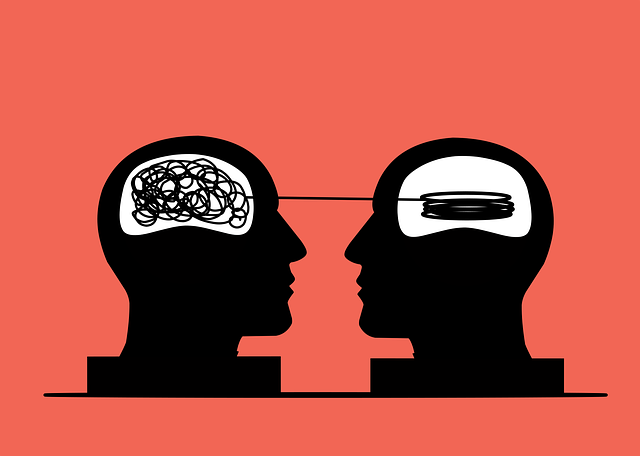Self-care is a powerful tool for managing stress and improving mental well-being, especially in addressing Longmont Relationship Issues Therapy. It involves nurturing physical, mental, and emotional health through activities like exercise, mindfulness, hobbies, setting boundaries, and seeking professional support. Starting with introspection to identify personal needs, creating structured daily routines, and incorporating social connections can transform lives. Overcoming barriers such as relationship issues or therapy for mental health builds inner strength and promotes a healthier mindset. Longmont Relationship Issues Therapy offers specialized sessions to explore emotional challenges, gain insights into emotional intelligence, challenge negative thought patterns, boost self-esteem, and cultivate self-compassion, ultimately enhancing overall mental wellness.
Self-care is an essential practice for maintaining mental well-being, yet many struggle to prioritize it. This comprehensive guide aims to empower individuals in Longmont to enhance their self-care routines and overall quality of life. We explore the profound impact of self-care on mental health and provide practical strategies for identification of personal needs and setting achievable goals. Learn how Longmont Relationship Issues Therapy can facilitate this process, offering tailored support to overcome barriers and foster sustainable self-care practices.
- Understanding Self-Care and its Impact on Mental Well-being
- Identifying Personal Needs and Prioritizing Self-Care Activities
- Strategies for Incorporating Daily Self-Care Routines
- Overcoming Barriers and Sticking to a Self-Care Plan
- The Role of Longmont Relationship Issues Therapy in Enhancing Self-Care Practices
Understanding Self-Care and its Impact on Mental Well-being

Self-care is an essential practice that involves actively nurturing and prioritizing one’s physical, mental, and emotional well-being. It’s not just about taking a break or indulging in pleasures; rather, it’s a conscious effort to maintain a healthy balance in life. In today’s fast-paced world, where stress and pressure are prevalent, understanding the impact of self-care on mental health is crucial, especially for those seeking solutions to Longmont Relationship Issues Therapy.
When individuals dedicate time and energy to self-care, they enhance their emotional intelligence, enabling them to manage stress, process emotions effectively, and build resilience. This practice can take many forms, such as engaging in regular exercise, practicing mindfulness or meditation, pursuing hobbies, setting personal boundaries, or seeking professional help for trauma support services or depression prevention. By incorporating these activities into daily routines, individuals can create a sanctuary of peace, improve their overall mental well-being, and foster healthier relationships, ultimately leading to a more fulfilling life.
Identifying Personal Needs and Prioritizing Self-Care Activities

In the pursuit of improved self-care practices, the first step is to identify your personal needs. This involves introspection and a willingness to acknowledge your emotional, physical, and mental requirements. Everyone’s needs are unique; what brings peace and rejuvenation to one person might differ significantly from another. For instance, while some may find solace in solitude and nature walks, others might need social interactions and group activities to thrive. Understanding these nuances is essential for effective self-care planning.
Prioritizing self-care activities requires a balanced approach. It’s not about completing a checklist but rather fostering a lifestyle that incorporates healthy habits. Consider incorporating practices such as regular exercise, mindfulness meditation, or engaging in hobbies that spark joy. Longmont Relationship Issues Therapy can be a valuable resource for individuals seeking guidance on personal growth and prioritizing self-care, especially when navigating mental health challenges. Additionally, exploring programs like Mental Health Education Programs Design or Social Skills Training and Communication Strategies can empower individuals to take charge of their well-being and create lasting positive changes.
Strategies for Incorporating Daily Self-Care Routines

Incorporating daily self-care routines can seem daunting, but with a structured approach, it becomes a manageable and transformative practice. Start by identifying your priorities—whether it’s dedicated time for relaxation, physical activity, or connecting with nature. Consistency is key; allocate specific time slots in your schedule for self-nurturing activities, just as you would for important appointments or commitments. Simple yet effective practices like journaling, meditation, or even a short walk can significantly impact your well-being. These routines not only provide mental clarity but also serve as preventive measures against Longmont Relationship Issues Therapy needs, as they foster resilience and self-awareness.
Consider incorporating social connections and activities that enhance your sense of belonging. Building and maintaining healthy relationships are vital for overall health, a concept supported by both Social Skills Training and Healthcare Provider Cultural Competency Training. If certain social interactions trigger stress or anxiety, Crisis Intervention Guidance can offer strategies to navigate these challenges. Remember, self-care is not solitary; it includes fostering meaningful connections that support your emotional well-being.
Overcoming Barriers and Sticking to a Self-Care Plan

Starting and maintaining a self-care routine can be challenging due to various barriers. For many individuals dealing with relationship issues in Longmont or seeking therapy for their mental health, committing to self-care might seem like an added task. However, overcoming these obstacles is essential for fostering inner strength and developing a healthier mindset. One effective strategy is to integrate self-care into your daily life mindfully; treat it as a non-negotiable priority, just like attending work or social commitments.
Creating a personalized plan tailored to your needs can help. This might include activities such as Mental Wellness Journaling Exercises for reflection and clarity, or engaging in regular physical activity to reduce stress. Crisis Intervention Guidance can also be beneficial, offering tools to navigate tough times. Consistency is key; start small with manageable steps, and gradually build upon them. With dedicated effort, you can overcome barriers and develop the inner strength needed to stick to a self-care plan, ultimately enhancing your overall mental wellness.
The Role of Longmont Relationship Issues Therapy in Enhancing Self-Care Practices

Longmont Relationship Issues Therapy plays a pivotal role in empowering individuals to enhance their self-care practices and ultimately, their mental wellness. Through specialized therapy sessions, clients delve into complex emotional issues that often hinder effective self-care routines. By addressing relationship problems, whether personal or interpersonal, individuals gain valuable insights into their emotional intelligence, fostering better understanding of themselves and others.
This therapeutic approach focuses on facilitating self-esteem improvement by helping clients identify and challenge negative thought patterns. As they navigate the process, participants learn to prioritize self-compassion, a crucial aspect of holistic mental wellness. The result is not just improved relationships but also enhanced emotional resilience, enabling individuals to engage in proactive self-care behaviors that positively impact their overall well-being.
Incorporating self-care practices into daily life is a transformative journey that empowers individuals to thrive. By understanding the profound impact of self-care on mental well-being, identifying personal needs, and prioritizing self-nurturing activities, one can create a sense of balance and resilience. Longmont Relationship Issues Therapy serves as a valuable resource, guiding individuals through this process by offering strategies for sustainable daily routines and helping overcome barriers. Through tailored support, therapy enables people to embrace self-care as a holistic approach to enhancing their overall well-being.








